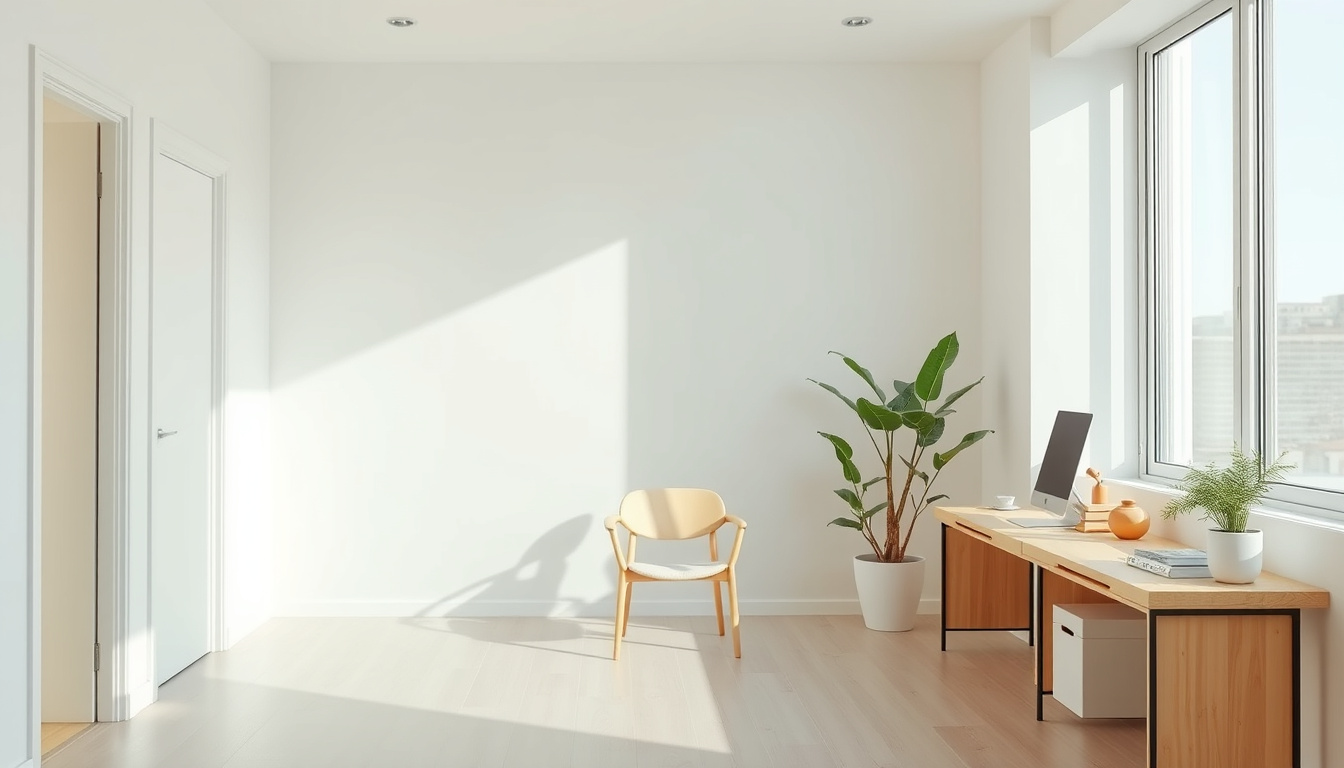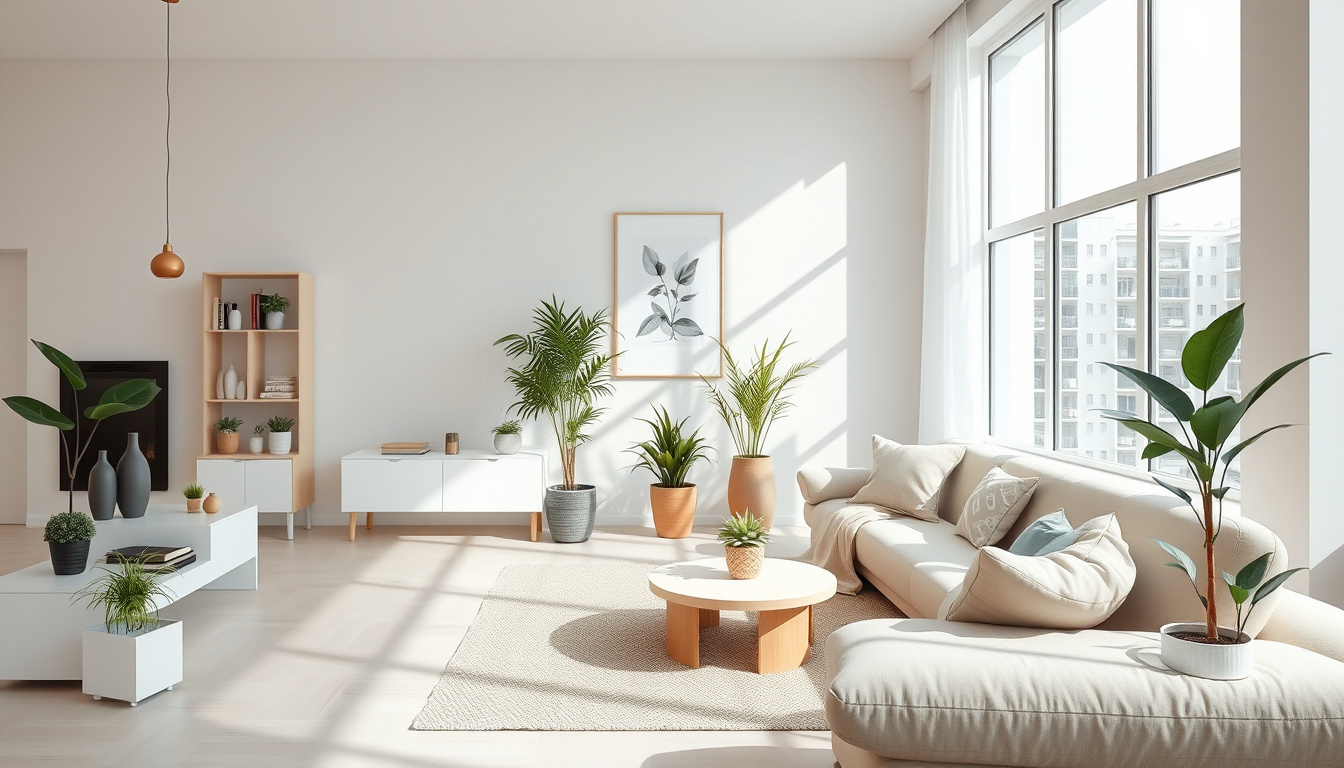In today’s fast-paced world, where consumerism often dictates our lives, the concept of minimalism has emerged as a refreshing alternative. Minimalism: Living More with Less is not just about decluttering spaces but is a lifestyle choice that transcends the physical realm, inviting individuals to reflect on their possessions, values, and priorities. This article delves into what minimalism truly means, the myriad benefits of embracing a minimalist approach in your daily life, and offers practical tips for sustaining this fulfilling way of living. Join us as we explore the transformative journey of minimalism and discover how living simply can lead to greater clarity, peace, and overall well-being.


Decluttering Your Space: Practical Steps to Minimalism
Embracing minimalism: living more with less, is not just a trend; it’s a lifestyle choice that can lead to greater satisfaction and reduced stress. To begin your journey towards minimalism, start by assessing each room in your home. Identify items that no longer serve a purpose or bring you joy, and consider donating or selling them. A practical step is to tackle one small area at a time—this could be a drawer, a closet, or even a corner of your living room. As you declutter, question the importance of each item. Will you use it in the future? Does it hold significant emotional value? By systematically reducing clutter, you create a serene and inviting space that reflects your values and lifestyle. Furthermore, implementing a one-in-one-out rule can help maintain your new, minimalist environment by ensuring that new purchases do not overwhelm your space. Ultimately, minimalism: living more with less, fosters not only an organized home but also cultivates a mindset focused on experiences over possessions.
Minimalism and Mental Well-being: Finding Clarity and Peace
In today’s fast-paced world, the concept of minimalism: living more with less has emerged as a powerful remedy for mental clutter and emotional chaos. Embracing minimalism involves simplifying your life by decluttering both your physical space and your mental load. This intentional lifestyle not only reduces distractions but also fosters a sense of clarity and peace. By focusing on what truly matters, individuals can experience less anxiety and increased well-being. Research shows that a minimalist approach leads to more mindful living, allowing for deeper connections with oneself and others. This shift, characterized by prioritizing quality over quantity, can significantly enhance mental health, encouraging positive habits and a greater appreciation for life’s simple pleasures. Thus, minimalism serves not just as an aesthetic choice but as a profound philosophy that nurtures the mind, promoting tranquility and happiness in an often overwhelming world.

Sustaining a Minimalist Lifestyle: Tips for Long-term Success
Sustaining a minimalist lifestyle can seem daunting, especially when faced with the societal pressures to consume more and acquire unnecessary possessions. However, embracing minimalism: living more with less is not just a passing trend; it’s a lifestyle choice that can lead to greater happiness and fulfillment. To achieve long-term success in this journey, start by establishing clear goals that reflect your values and priorities. Regularly declutter your space, but also your mind—engage in mindful practices like meditation to stay focused on what truly matters. Embrace quality over quantity by investing in fewer, high-quality items that enhance your life rather than clutter it. Furthermore, consider adopting sustainable habits that complement your minimalist philosophy, such as shopping second-hand or participating in a swap event with friends to keep your belongings intentional and meaningful. Remember to surround yourself with a supportive community that encourages your minimalist aspirations. By continually educating yourself on the principles of minimalism, you can create a fulfilling life that emphasizes experiences over possessions—truly embodying the idea of living more with less.
Frequently Asked Questions
What is minimalism?
Minimalism is a lifestyle that focuses on simplifying your life by reducing excess, both materially and mentally. It encourages living with less clutter and distractions to prioritize what truly matters.
What are the benefits of adopting a minimalist lifestyle?
Embracing minimalism can lead to increased mental clarity, reduced stress, improved focus, and a greater appreciation for the things you own. It also often results in financial savings and a more sustainable lifestyle.
How do I start decluttering my space?
Begin by assessing each room and identifying items that you no longer use or need. Start small, tackling one area at a time, and use methods like the ‘one year rule’ (if you haven’t used it in a year, consider letting it go). Donate or sell items that are in good condition.
How does minimalism contribute to mental well-being?
Minimalism helps clear both physical clutter and mental distractions, allowing for a simplified life. This can lead to enhanced focus, reduced anxiety, and an overall sense of peace and clarity, as it promotes a more intentional way of living.
What tips can help me sustain a minimalist lifestyle long-term?
To maintain a minimalist lifestyle, regularly reassess your belongings, set clear priorities, and practice mindful consumption. Adopt habits that promote simplicity, such as creating a ‘one in, one out’ rule for new items and developing routines that emphasize quality over quantity.

Leave a Reply